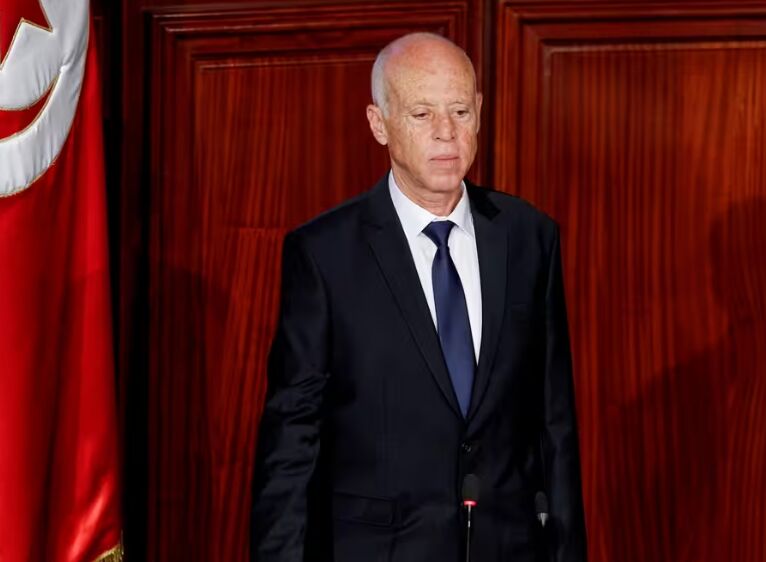Tunisia Slammed for Suppressing Freedom of Speech with Draconian 'Fake News' Law
Tunisia's President Saied is facing criticism from human rights groups for implementing a law criminalizing fake news, which they argue suppresses freedom of speech. Critics say the law is being used to target opponents and restrict critical speech. The International Commission of Jurists is calling for the release of those imprisoned and an end to political attacks. Concerns have also been raised about the politicization of criminal proceedings amid President Saied's control over the judiciary.
Tunisia has come under fire from a leading human rights group for the use of a law criminalizing the spreading of "fake news" to suppress freedom of speech in the country.
The International Commission of Jurists (ICJ), based in Geneva, has criticized President Kais Saied's implementation of the legislation, which they argue allows him to criminalize any form of electronic communication that he objects to.
Decree 54, issued by President Saied in September 2022, criminalizes the use of electronic equipment to share false information. Advocates of the law view it as an important measure to combat misinformation. However, since its introduction, the decree has been used to target Saied's opponents and critics, resulting in several individuals being imprisoned.
The ICJ's main criticism is directed at Article 24 of the decree, which imposes up to five years imprisonment and a fine of up to $15,000 for spreading "false information and rumors" online. The sentence doubles if the statement is made about a state official.
Critics argue that the lack of a precise definition of false information or rumor gives authorities an easy tool to penalize critical speech. Additional provisions in the law empower security services to search telecommunication devices and computers for material deemed in breach of the decree.
Devices can also be seized, and data intercepted if authorities believe there is probable cause. At least 14 individuals have been investigated under the law, with some already serving prison sentences, according to the ICJ.
The organization believes there are likely many more cases. The report highlights specific examples of individuals who have faced legal action under the decree. One lawyer was sentenced to 11 months in prison and barred from practicing law for five years after accusing the justice minister of fabricating evidence.
A law student and blogger who criticized the policing in their neighborhood is awaiting criminal proceedings. The editor of a local news site is also under investigation for writing a critical opinion piece about the country's prime minister.
Fida Hammami, a legal adviser for the ICJ, described the law as "draconian" and a repressive act. She emphasized that such laws have no place in democratic times and are tools of authoritarian regimes. The ICJ is calling for all charges against those currently imprisoned under the decree to be dropped and for reparations to be paid.
They also demand a halt to the practice of trying civilians in military courts and an end to political attacks on lawyers, political opponents, and journalists. Decree 54 has faced widespread backlash since its introduction.
Several United Nations Special Rapporteurs expressed deep concerns about its compatibility with international law. Amnesty International, Human Rights Watch, Access Now, and other rights groups have actively resisted the legislation. Within Tunisia, the journalists' union has been at the forefront of opposing the law.
The implementation of Decree 54 has been facilitated by President Saied's weakening of the judiciary's independence. By disbanding the judiciary's ruling body and replacing it with a body of his own design, which ultimately answers to him, Saied has raised concerns about the politicization of criminal proceedings.
The ICJ argues that the Tunisian authorities are using the prosecution office to initiate and continue politically motivated criminal proceedings against judges, lawyers, critics, political opponents, and individuals exercising their fundamental rights, even when the charges are unfounded.




